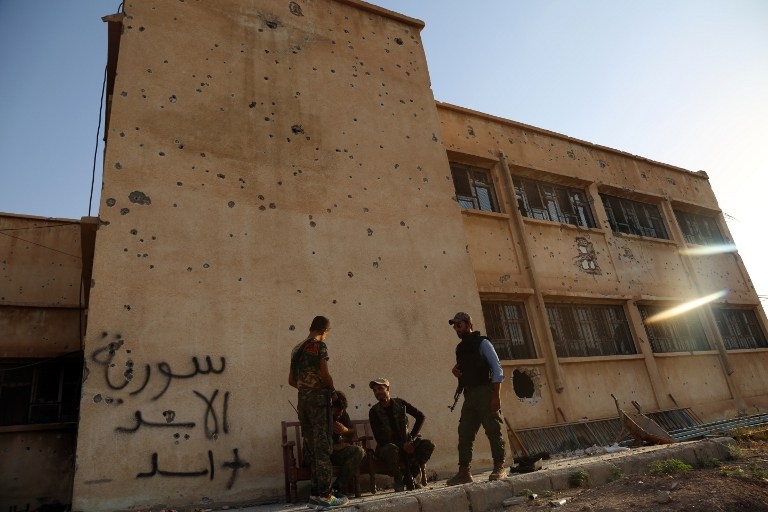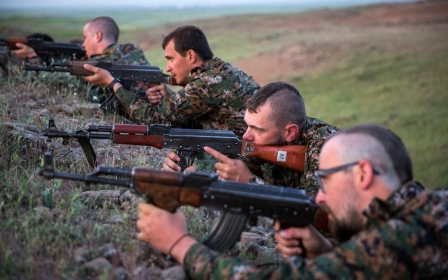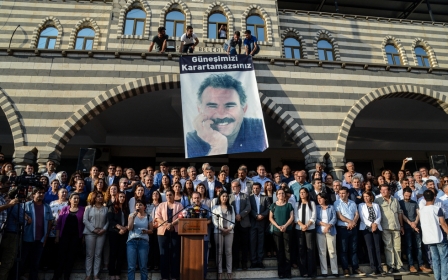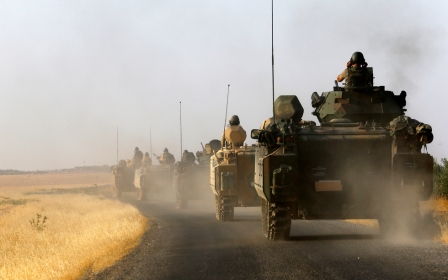Turkey says US-backed Kurd forces in Syria have not retreated

Turkey's President Recep Tayyip Erdogan on Friday dismissed claims that a US-backed Syrian Kurdish militia had retreated east of the Euphrates River in northern Syria following Turkish strikes against the group, raising the prospect of further fighting in the area.
Turkey has warned that it will continue bombarding the Kurdish People's Protection Units (YPG) militia, which Ankara sees as a terrorist organisation linked to its own domestic separatist rebels, unless they moved east.
"Right now, people say they have gone to the east but we say no, they haven't crossed," he said during a speech in Ankara.
Erdogan's remarks appeared to be a response to comments by a US defence official, who said on Monday that Kurdish forces had "all" moved east of the Euphrates.
A "loose agreement" on a ceasefire announced by Washington on Tuesday and confirmed by the YPG came into question hours later when fighting broke out once again around the key town of Jarabulus.
The Turkish premier said on Friday that Ankara would be aware if the militia had retreated.
Turkey also said on Thursday that foreign fighters who travelled to Syria to fight the Islamic State (IS) group alongside the YPG would face the same treatment as all other members of the "terrorist" group.
Senior Turkish officials told Middle East Eye British, French, US and other citizens fighting alongside the YPG would be treated as "terrorists... regardless of whether they are members of allied countries".
The YPG are backed by the US - also a key ally of Turkey in the conflict. Washington has provided the YPG with training and equipment to fight IS in Syria.
Ankara's operation against the YPG aims to prevent the militia joining up with a Kurdish-held area to the west of the Euphrates, which Turkey fears would lead to the emergence of an autonomous Kurdish region in Syria and bolster separatists rebels on the Turkish side of the border.
"No one can expect us to permit a terror corridor to be created. We will not allow it," the president added, referring to a desire by Syrian Kurdish groups to unite the three "cantons" already in place in northern Syria.
The Turkey-Kurdish fight is yet another complication in the tangled civil war that is ravaging Syria as both Turkey and the US seek to retake territory from IS by supporting different proxy groups.
A week ago, Turkey launched an unprecedented military operation to clear the border area of the Islamic State group as well as halt the westward advance of the YPG, potentially complicating Washington's strategy to defeat the militants.
On Thursday, Ankara said it had cleared dozens of villages of "terrorists" after taking the key border town of Jarabulus without much resistance on the first day of the offensive on 24 August.
During the operation, dubbed "Euphrates Shield," Turkey has also carried out strikes against the YPG.
Ankara regards the YPG as a sister organisation to the Kurdistan Workers' Party (PKK), which has waged an insurgency that has left over 40,000 dead since 1984.
While the YPG is allied with the US against IS, the PKK is proscribed as a terrorist organisation by Turkey, the European Union and Washington.
Middle East Eye propose une couverture et une analyse indépendantes et incomparables du Moyen-Orient, de l’Afrique du Nord et d’autres régions du monde. Pour en savoir plus sur la reprise de ce contenu et les frais qui s’appliquent, veuillez remplir ce formulaire [en anglais]. Pour en savoir plus sur MEE, cliquez ici [en anglais].




